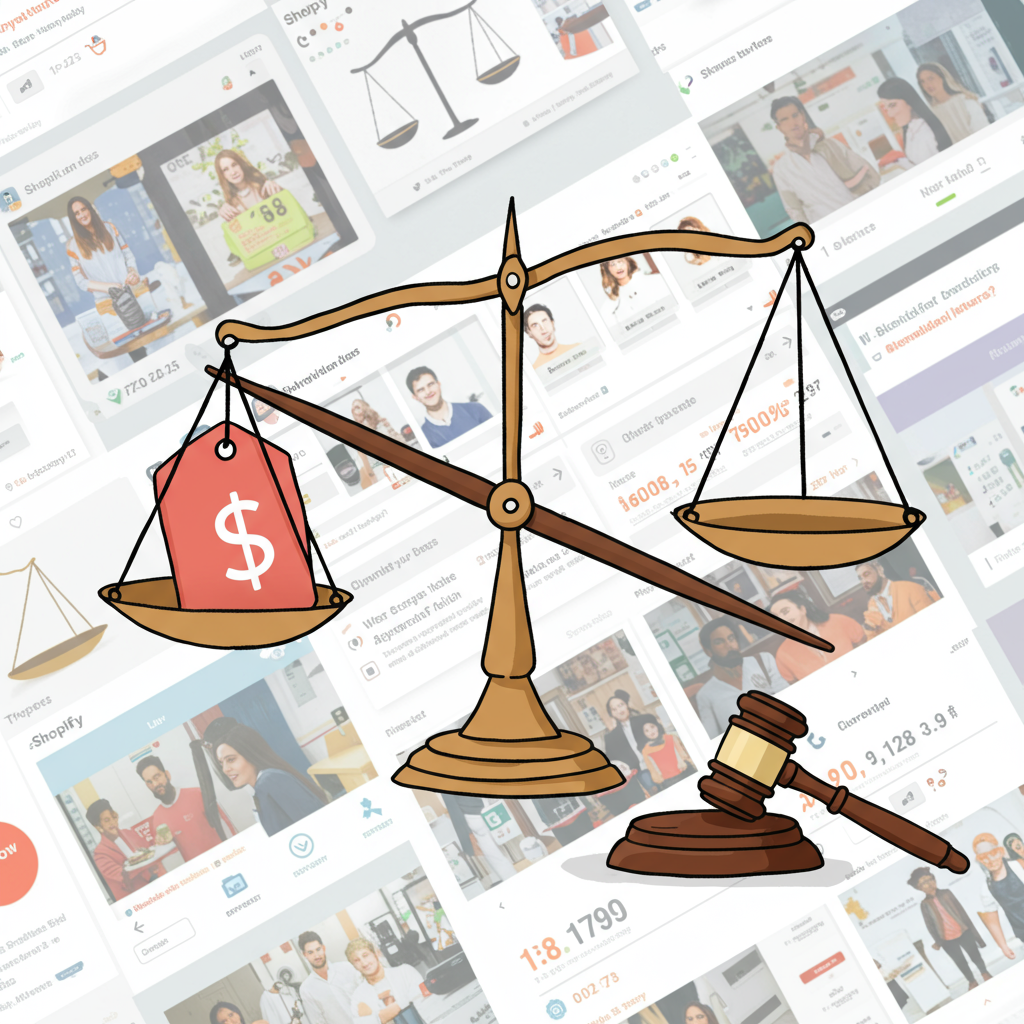A Merchant’s Guide to Ethical and Legal Pricing on Your E-commerce Platform
As a Shopify merchant, I know firsthand that setting prices for your products is one of the most critical decisions you’ll make. It directly impacts your profitability, brand perception, and competitive standing in the market.
It’s a delicate balance, isn’t it? You want to attract customers with competitive offers, but you also need to ensure your business remains sustainable and profitable.
However, there’s a line that, if crossed, can lead to serious legal and ethical repercussions: predatory pricing. While it might sound like something only large corporations engage in, understanding its nuances is crucial for every business, regardless of size, operating on platforms like Shopify.
My goal with this article is to demystify predatory pricing, explain its legal and ethical implications, and provide clear guidelines so you can confidently price your products on Shopify without inadvertently stepping into dangerous territory.
So, what exactly is predatory pricing? At its core, it involves setting product prices so low that they are below your cost of production, with the specific intent of driving competitors out of the market.
The key element here isn’t just low prices; it’s the *intent*. A business engaging in predatory pricing aims to eliminate competition, and once rivals are gone, they plan to raise prices to monopolistic levels, recouping their losses and then some.
It’s a strategic, albeit illegal and unethical, maneuver designed to achieve market dominance by suffocating competitors through unsustainable pricing.
Legally, proving predatory pricing is a high bar. Courts typically look for two main components: first, that prices were indeed below an appropriate measure of cost, and second, that there was a dangerous probability of the predator recouping its losses once competition was eliminated.
In the United States, predatory pricing falls under antitrust laws, primarily the Sherman Act and the Clayton Act. These laws are designed to promote fair competition and prevent monopolies.
Similar antitrust or competition laws exist in most developed economies, all aiming to protect market health and consumer choice from anti-competitive practices.
The reason it’s illegal is straightforward: it harms competition. When smaller businesses or new entrants can’t compete with artificially low prices, they are forced out, leading to less innovation, fewer choices for consumers, and ultimately, higher prices once the predator achieves its monopoly.
However, it’s important to understand that simply having low prices is not predatory pricing. Sales, promotions, clearance events, or even aggressive competitive pricing are generally legitimate business practices.
The distinction lies in the intent and the long-term strategy. Are you selling below cost to clear inventory, or to systematically eliminate a competitor?
Beyond the legal definitions, there are significant ethical considerations. As a merchant, you have a responsibility not just to your customers and shareholders, but also to the broader market ecosystem.
Engaging in predatory practices undermines fair play, stifles entrepreneurship, and can lead to a less vibrant and diverse marketplace.
Ethical pricing involves considering the sustainability of your business, the fairness to your competitors, and the long-term value you provide to your customers.
It’s about building a business that thrives on merit, innovation, and customer satisfaction, rather than on the destruction of competition.
Now, how does this relate to Shopify? Shopify itself is a platform; it provides the tools for you to build and manage your online store. Shopify doesn’t dictate your pricing strategies.
Therefore, the responsibility for ethical and legal pricing rests squarely on your shoulders as the merchant operating your Shopify store.
Your pricing decisions reflect on your brand, your values, and your commitment to fair business practices within the e-commerce community.
Let’s clarify what legitimate low pricing looks like. You might offer introductory discounts for new products, run seasonal sales, or use loss leaders to attract customers to your store, hoping they’ll purchase other, higher-margin items.
These are all common and acceptable strategies, provided they are not executed with the specific intent to monopolize a market by driving out competitors through unsustainable pricing.
Understanding your true costs is paramount. This includes not just the cost of goods sold (COGS), but also shipping, marketing, operational overhead, and even your own time.
When you price your products, ensure you have a clear understanding of your break-even point and what margin you need to sustain and grow your business.
My first piece of advice for any Shopify merchant is to know your numbers inside and out. Accurate cost accounting is your first line of defense against accidental predatory pricing claims and, more importantly, against unsustainable business practices.
Secondly, focus on your value proposition. Instead of solely competing on price, differentiate your products through quality, unique features, exceptional customer service, or a compelling brand story.
Thirdly, monitor your competitors, but don’t let their pricing dictate yours entirely. Understand their strategies, but always ensure your own pricing aligns with your costs, your brand’s value, and your long-term business goals.
Be transparent with your pricing. Clearly communicate sale prices, original prices, and any conditions for discounts. This builds trust with your customers and avoids any perception of deceptive practices.
Consider the long-term health of your niche or industry. A healthy competitive environment benefits everyone, including you, by fostering innovation and preventing market stagnation.
Finally, if you’re considering an aggressive pricing strategy that pushes the boundaries, I strongly recommend seeking legal counsel. An attorney specializing in antitrust or business law can provide specific guidance tailored to your situation.
In conclusion, while the concept of predatory pricing might seem distant for many Shopify merchants, understanding its legal and ethical boundaries is a vital part of responsible e-commerce.
By focusing on sustainable pricing, understanding your costs, and competing on value rather than just price, you can build a robust and ethical business on Shopify that thrives in the long run.
What are your thoughts on these guidelines, and how do you approach pricing ethically on your Shopify store?
Let’s continue to build a fair and vibrant online marketplace together.






